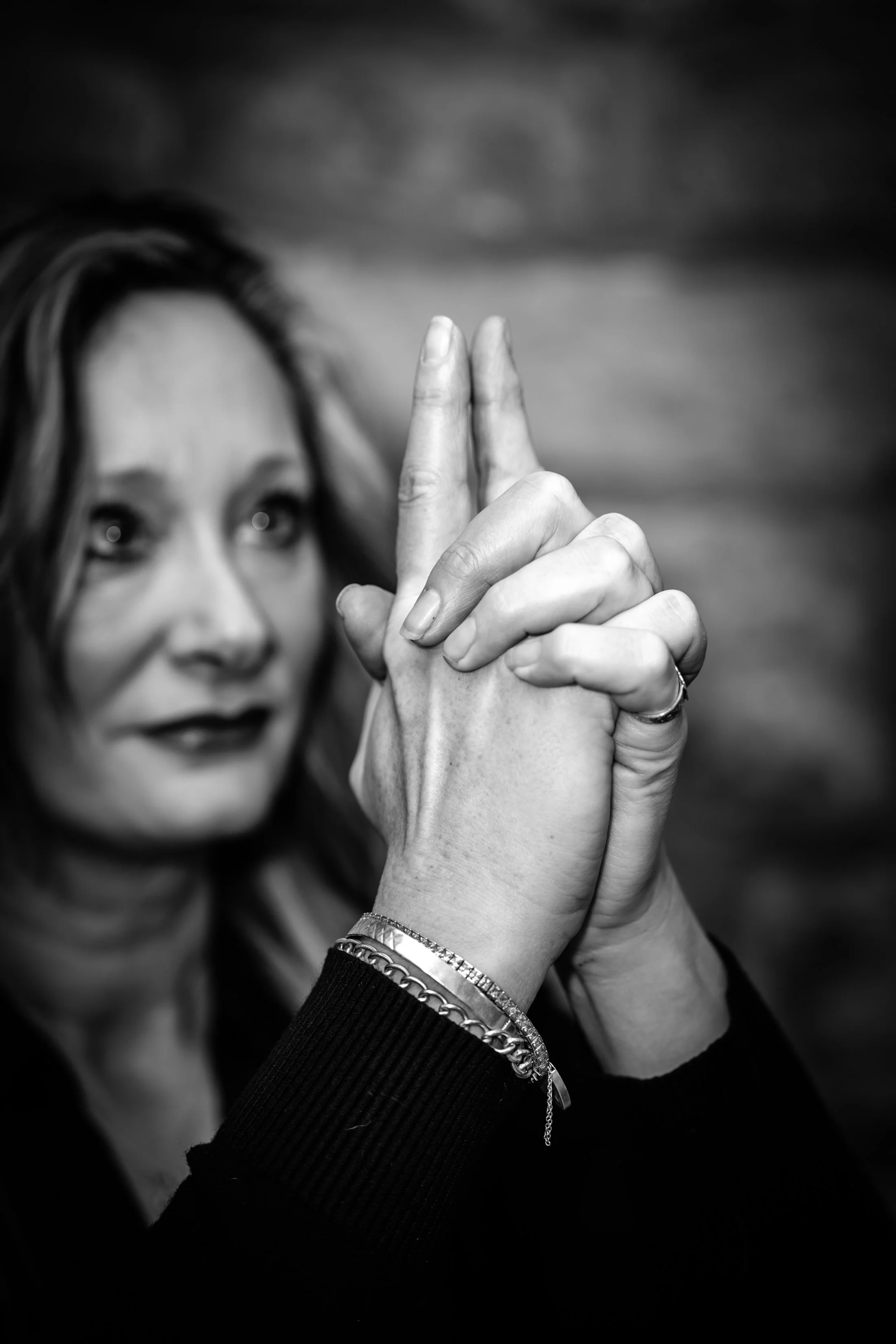
FINALLY, Break Free from Sleepless Nights and Burnout Before They Break You
Transform exhaustion into energy with proven hypnotherapy techniques that heal your mind while you rest
HOW I CAN HELP YOU
HYPNOTHERAPY SERVICES
WELCOME
Hello, my name is Dr. Rebecca Clavell-Bate (Ed.D, M.Ed, PGCE, HPDip) and I am a hypnotist/hypnotherapist based in East Lancashire, in the northwest of the UK. I am fully qualified and have trained with some of the best hypnotherapists in the world.
Having spent over 20 years working in education, with some of the most challenging and vulnerable young people in the UK, many of whom had social, emotional, and mental health difficulties, my interest in alternatives to the more traditional approaches to change work began to grow. I stumbled across hypnosis whilst researching methods to help combat my own stress and life changes and after having a session I quickly realised the power of the subconscious mind – this stuff really works! I trained initially at the Fylde Hypnotherapy Academy, then with the UK Hypnosis Academy, completing professional diplomas in Clinical Hypnotherapy. I have also studied fun stage hypnosis with the Hypnotist Stage Academy and I am continually developing my professional skills and knowledge by learning with other world class hypnotists.
My approach is client-centred; I want to help people make life changing transformations and help them be their very best self. I work content-free using a variety of techniques including Neuro-Linguistic Programming (NLP), Emotional Freedom Technique, Eye Movement Desensitisation Reprogramming (EMDR), and Kinetic Shift. The Kinetic Shift is an alternative to traditional hypnotherapy and incorporates a variety of hypnosis techniques, NLP and EMDR. Kinetic Shift is both an experience and a way of using your feelings and emotions to change things.
My sessions are dynamic and you will notice changes both during and following the session. Sessions can last up to an hour and a half, however they are not timed and if the work is completed in less time, great!
I have a great success rate to date, just see my reviews! - I can help!
HOW HYPNOTHERAPY WORKS
The best hypnotherapy is often a combination of various techniques adapted to fit the situation. What works best depends on the individual. It is important to establish what the client wants to get out of the sessions and determine what goals they have. It might be the client has several goals so the therapist may work with the client to find out which one is most important and will be addressed first. Once it has been established what the client wants out of hypnotherapy this will help influence choice of approach.
My holistic, solution-focussed approach uses a variety of techniques that allow your subconscious mind to make the necessary changes that will allow you to move forward and achieve your goals. Using techniques that encourage natural plasticity, your brain can be retrained to create new positive neuropathways enabling you to make positive changes to your thinking. After just one session of hypnosis you will notice how much more calm and relaxed you feel, helping you to sleep better, and you’ll also benefit from increased serotonin levels so you’ll soon start to feel more positive.
There are some contraindications to hypnosis and these will be discussed with you during your free clarity call. Hypnotherapy is not a miracle cure and cannot cure disease or congenital problems, however it can help with managing symptoms of such issues such as pain and difficulty sleeping.
Hypnotherapy is particularly powerful for helping overcome stress, anxiety and burnout. My Beat Burnout programme is specifically designed to help those experiencing symptoms of burnout to better manage their symptoms and take a more mindful approach to their mental health. Along side 1:1 hypnosis sessions, I teach simple strategies and techniques that can be used daily to support and reinforce the changes made and help clients get back on track and live life to the full.
FAQs
-
Hypnosis is a natural state and you are in hypnosis many times a day without even realising it! It is a state of mind similar to daydreaming, a state of intense focus and concentration. It is a safe and efficient way of helping you to make positive changes to your beliefs, behaviours and perceptions; you do not get stuck in hypnosis and you can't be hypnotised against your will. There are a few contraindications to hypnosis and these are checked during the initial consultation to make sure that it is safe for you to proceed with the therapy.
-
Everyone's experience of hypnosis is different. Often people describe it as a very relaxing and enjoyable experience. Some people describe being able to hear everything and feel quite alert during the session, others feel like they are floating and drift in and out of their own imaginative world.
-
Hypnosis can only help you to make the changes to your life that you want to make. The hypnotherapy session is designed to specifically meet your needs, you are active in the process - you are not unconscious or asleep and are in control of yourself throughout.
-
Hypnosis can help you make powerful and positive lifestyle changes. Some of the most common uses for hypnotherapy include overcoming anxiety, stress, fears, phobias, PTSD, stopping smoking, weight loss, improving confidence and motivation, breaking habits, sleep issues, pain management and many more...
-
The number of sessions required will be discussed in your initial consultation as this is unique to you. Most issues can be resolved in 3 or 4 sessions, however it depends on how you respond. Phobias/fears are generally resolved in one session, deep rooted anxiety, stress or PTSD for example will likely require 4 sessions.
-
This paradox is common in insomnia. It often reflects a state of hyperarousal - your brain remains alert despite your body being physically tired. Cognitive and emotional stressors, as well as poor sleep conditioning, are often at the root.
-
Night-time awakenings are part of natural sleep cycles. However, in insomnia, the issue isn’t the waking, it’s the inability to fall back asleep. This is often due to elevated cortisol levels, racing thoughts, or conditioned arousal associated with the bed or bedroom.
-
Most adults require between 7 to 9 hours of sleep per night. But what matters most is sleep efficiency — how much of your time in bed is actually spent sleeping. Quality, continuity, and depth of sleep are as important as duration.
-
Everyone has occasional disturbed nights. Insomnia is defined as difficulty falling asleep, staying asleep, or waking too early at least three times per week for a period of three months or more — and it must cause significant daytime impairment.
-
Yes. Evidence from clinical trials shows that behavioural interventions, such as Cognitive Behavioural Therapy for Insomnia (CBT-I), are more effective in the long term than sleep medication. Natural sleep can be restored by retraining the brain and body.
-
This is a classic feature of insomnia. When the brain associates the bed with alertness or worry, it becomes a cue for cognitive activity. This can be reversed through stimulus control techniques and learning to create a new, calm association with bedtime.
-
Sleep patterns do change with age, including lighter sleep and earlier waking times. However, poor sleep is not inevitable. Many age-related sleep problems stem from behavioural, environmental or medical factors that can be addressed.












